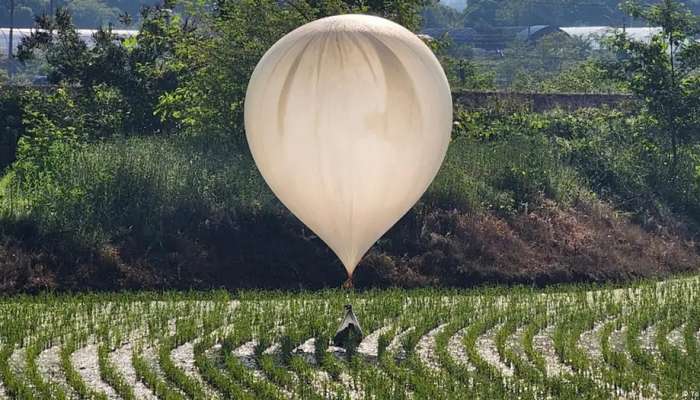
Seoul: South Korea's Joint Chiefs of Staff said more than 150 North Korean balloons were found dropped across its northern border as of Wednesday afternoon and were being recovered by military rapid response and bomb disposal teams.
North Korea has been flying large numbers of balloons carrying trash and excrement across the heavily fortified border between the countries since Tuesday night, the South's military said, calling the act base and dangerous.
"We sternly warn the North to immediately stop its inhumane and low-class actions," Seoul's Joint Chiefs of Staff said.
It advised civilians not to touch the objects being flown in from North Korea and to report them to the military or the police if spotted.
There were no immediate reports of damage caused by the balloons. In 2016, cars and other property were damaged by similar North Korean balloon activity.
Why is the North sending trash balloons to the South?
The move is seen as an apparent retaliation against South Korean activists, often led by North Korean defectors, who have been sending anti-Pyongyang propaganda leaflets across the border.
Those balloons carry leaflets with messages critical of Pyongyang and have stoked tensions between the rival neighbours, including incidents in which the North reportedly tried to shoot them down.
North Korea has reacted angrily to the South Korean activists' balloons, which include information about the South's democratic society and even USB sticks with K-pop music videos.
In a statement released on Sunday, North Korean Vice Defence Minister Kim Kang Il said the North planned to scatter "mounds of wastepaper and filth" over border areas and other parts of South Korea in what he called a "tit-for-tat" response to leafleting by South Korean activists.
Balloon war between the two Koreas
Previous South Korean governments have tried to stop activists from carrying out such campaigns, arguing that they do not contribute to peace and endanger the safety of residents near the border.
A ban on balloon launches introduced in 2021 was later ruled unconstitutional by a top court. The court said it violated freedom of expression.
The two Koreas' large militaries often face off across the Military Demarcation Line, and North Korea routinely threatens to destroy its neighbour.